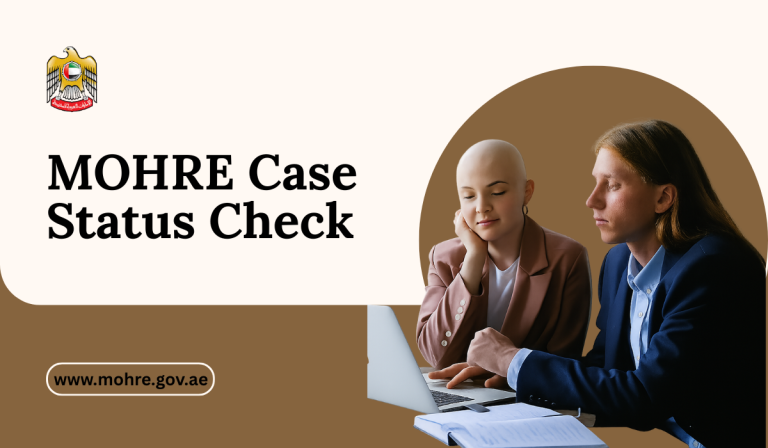UAE: Major HR Policy Changes For Sharjah Government Employees In 2026 – What To Expect?

UAE: Major HR Policy Changes For Sharjah Government Employees In 2026 – What To Expect? In a significant policy shift, the Sharjah Executive Council has introduced comprehensive HR policy changes for Sharjah government employees in 2026 under Decree-Law No. (2) of 2026. These reforms are designed to enhance fairness, accountability, and performance across all government departments, while also supporting Emiratisation goals and better inclusivity.
Whether you are a job seeker looking to enter the Sharjah government workforce or an existing public sector employee, these updates will have a considerable impact on recruitment, evaluation, job structure, and internal HR governance.
In this article, we’ll explore the key HR policy changes in Sharjah for 2026, what they mean for employees, and how they align with the UAE’s broader vision for a more efficient and inclusive public sector.
Key Highlights of the 2025 HR Policy Reform in Sharjah
| Policy Area | Previous Policy | New 2026 Update |
|---|---|---|
| Probation Period | 6 months | Extended to 9 months, extendable to 12 |
| Emiratisation Focus | General inclusion | Priority hiring for Emiratis and their children |
| Organizational Structures | Varied by department | Unified, standardized structures across all departments |
| Inclusion for People of Determination | Informal practices | Formalized hiring procedures and protections |
| HR Oversight Committees | Limited | Multiple dedicated internal HR committees |
Extended Probation Periods
One of the most significant updates under the new Sharjah HR policy is the extension of probation periods for new hires from six months to nine months. Departments are now also allowed to extend this period by an additional three months if necessary.
Why this matters: This change provides hiring departments with a longer window to evaluate a new employee’s performance, adaptability, and contribution to the department. It also allows the new hires more time to adjust and demonstrate their capabilities.
This is particularly beneficial for Emirati job seekers, giving them a more structured and supportive environment to prove their value during the onboarding phase.
Prioritizing Jobs for Emiratis and Children of Emirati Mothers
A core focus of the 2025 HR reform is job prioritization for Emiratis and their children, including those whose mothers are Emirati. New job grades have been introduced specifically for these groups.
This strategic initiative aligns with the UAE’s broader Emiratisation goals to empower local talent and ensure meaningful employment opportunities for UAE nationals.
Benefits of This Policy
- Ensures sustainable employment for UAE citizens
- Encourages national capacity building
- Promotes diversity and inclusion in the public sector
Standardized Job Titles and Organizational Structures
To eliminate inconsistencies between departments, the HR policy mandates all Sharjah government entities to submit clear, unified organizational structures for approval.
These structures will include:
- Standardized job titles and descriptions
- Defined responsibilities and reporting lines
- Unified grading and pay scales
This change will foster transparency, equity, and clarity across all government departments and avoid duplication or misalignment of roles.
Strengthening Inclusion for People of Determination
In line with the UAE’s vision of a more inclusive society, the HR policy changes for Sharjah government employees in 2025 introduce formal requirements for hiring people of determination (persons with disabilities).
Departments must ensure that:
- Job descriptions accommodate accessibility
- Interview processes are fair and non-discriminatory
- Employees receive the necessary support to thrive
This is a progressive step toward integrating differently-abled individuals into mainstream work environments, reflecting Sharjah’s commitment to social equality.
Establishment of Internal HR Committees for Accountability
To further enforce the new policies, several internal HR oversight committees are being established within government departments. These are designed to enhance fairness, transparency, and conflict resolution.
| Committee Name | Primary Role |
|---|---|
| Disciplinary Committee | Investigates workplace violations and enforces disciplinary measures |
| Grievances Committee | Handles complaints and conflict resolution among employees |
| Emergency Committee | Responds to crises or disruptions in government operations |
| Supreme HR Committee | Oversees all HR-related decisions and ensures alignment with central policies |
Each committee must include at least three members, guaranteeing balanced decision-making and ensuring the voices of employees are considered in all proceedings.
Why These Changes Are Critical for Sharjah’s Public Sector
The introduction of these HR reforms is not just a regulatory update—it’s a strategic transformation of how public institutions in Sharjah function.
Here’s how these changes benefit the emirate and its people:
Improved Hiring Practices
- Objective, merit-based recruitment
- Longer probation helps ensure quality hires
Stronger Support for Emiratis
- Enhanced career pathways
- Dedicated job grades and preference in hiring
Inclusive and Accessible Workplaces
- Equal opportunities for people of determination
- Removal of institutional barriers
Clearer Role Definitions
- Transparent grading systems
- Clear job descriptions improve efficiency
Higher Accountability in HR Operations
- Proper grievance redressal mechanisms
- Oversight ensures consistency in HR policy enforcement
Words from Leadership
His Highness Sheikh Abdullah bin Salem bin Sultan Al Qasimi, the Deputy Ruler of Sharjah, emphasized the purpose behind these reforms:
“These changes are aimed at improving how departments function while safeguarding employee rights and raising productivity across government institutions.”
This leadership vision reflects a growing trend in the UAE government workforce one that values inclusivity, structure, professionalism, and accountability.
Who Will Be Affected by the New HR Policy?
The following categories of individuals are directly impacted:
- Current Sharjah government employees (under new evaluation criteria)
- Job seekers, especially Emiratis and children of Emirati mothers
- HR departments and hiring managers
- People of determination entering public service roles
- Department heads tasked with restructuring internal operations
If you fall into any of the categories above, it’s important to stay updated with these new rules and adapt your approach accordingly.
FAQs About UAE: Major HR Policy Changes For Sharjah
How long is the new probation period under Sharjah’s 2026 HR policy?
Ans: The standard probation period has been extended from six months to nine months, with the option for a three-month extension based on departmental needs.
Are Emiratis given hiring preference under the new policy?
Ans: Yes, the updated HR policy gives job priority to Emiratis and children of Emirati mothers, with specific job grades assigned to ensure sustainable employment for UAE nationals.
What are the main functions of the new internal HR committees?
Ans: The committees are responsible for:
- Handling disciplinary actions
- Managing employee grievances
- Addressing emergencies
- Overseeing HR policies and operations
These bodies ensure fairness, transparency, and accountability in every aspect of HR within Sharjah’s government departments.
Conclusion
The HR policy changes for Sharjah government employees in 2026 represent a bold and strategic step toward building a more modern, inclusive, and high-performing public sector in the UAE.
By focusing on job prioritization for Emiratis, extending probation periods, standardizing job structures, and empowering internal HR committees, Sharjah is positioning itself as a leader in progressive governance.













